Last Updated on January 8, 2022 by Heather Hart, ACSM EP, CSCS
Let’s face it: while there are certainly some elite ultra runners that can knock out 100 miles and still lay their head down on their pillow by their normal bedtime, that’s not going to be the case for most of us mere ultrarunning mortals. For the non-elite, tackling longer ultramarathon distances, or 24-48 hour events, often means running well into the night, and even into the next morning, without sleep.
And the mental fatigue and exhaustion that comes with sleep deprivation? It’s HARD.
Enter: caffeine.
In addition to being something so many of us enjoy on a daily basis (I know it’s not just me!), caffeine is also a well known performance enhancing drug, providing both physical and cognitive benefits to athletes. It only makes sense that ultrarunners would utilize caffeine not only for performance, but to stay awake during the long, exhausting, overnight hours of a race.
However, like so many things in the sport nutrition world, caffeine strategies, dosing, and timing can be confusing and overwhelming…especially if you are new to running ultramarathon distances.
In this post I aim to answer common questions regarding ultrarunning and caffeine consumption, and discuss race day caffeine strategies to implement for ultramarathon success.
Ultrarunning and Caffeine: the Basics
If you’re anything like me, and enjoy the pick-me-up of caffeine in practically any form, you can skip right ahead to the Ultramarathon Race Day Supplementation Strategies section.
But, if you’d like to learn a little more about how caffeine works, as well as the potential risks, keep reading. By covering the the basics, you can understand why you may even consider supplementing with caffeine during a race in the first place:

What is Caffeine?
Caffeine is a central nervous system (CNS) stimulant of the methylxanthine class. Naturally found in plants (tea, coffee beans, cocoa beans), caffeine is also commonly found and consumed in a synthetic (man-made) form (I’m looking at you, Red Bull and No-Doz).
On the chemical level, caffeine works in two ways. First, caffeine is structurally similar to adenosine, the brain-chemical that makes the body “relax” or sleepy. Adenosine levels increase during waking hours, building up over the course of the day, and decrease during sleep. When you consume caffeine, it binds to the brain’s adenosine receptors, blocking adenosine from binding with the receptors, and thus, preventing you from feeling tired.
Second, caffeine potentiates intramuscular calcium release, thereby facilitating excitation-contraction coupling to increase muscle contractile function (7). In simpler terms: caffeine stimulates the release of calcium within your muscles, which initiates the whole series of events that leads to a muscle contraction.
Caffeine as an Ergogenic Aid for Running Performance
Caffeine has been recognized and used as an ergogenic aid (substance used for the purpose of enhancing performance) in sport for well over a century, with the first research articles regarding the effects of caffeine on muscle fatigue published in 1907 (6). In 1984 caffeine was added to the list of banned substances for use in athletics by the International Olympic Committee, and followed by the World Anti-Doping Agency (WADA) in 2000. While those restrictions were lifted in 2004, the National Collegiate Athletic Association (NCAA), still considers urinary caffeine concentration exceeding 15 μg/ml as a “banned” substance.
Point being: the sport performance enhancing abilities of caffeine are, and have been, long and well established.
When considering the sport of ultramarathon, caffeine is most commonly used to help runners:
- Acutely (temporarily) improve muscular endurance, movement velocity, and muscular strength.
- Prevent or slow down onset of fatigue.
- Improve cognitive (brain!) function, including attention and alertness (i.e., it helps keeps you awake).
- Improve cognitive and physical performance in some individuals under conditions of sleep deprivation (incredibly helpful for following course directions/not getting lost, remembering to eat, etc.)
- As a bonus, caffeine increases the amount of dopamine in our brain by blocking its reabsorption into our bodies. This can improve mood and feelings of happiness…and ward off woe-is-me-feelings, like the classic “why did I ever think running 100 mile was a good idea?”
Potential Drawbacks:
As with any supplement we use in sport, for every potential benefit, there is indeed a potential drawback. Caffeine, especially in excessive doses, is known to cause side effects such as:
- Headache
- Nervousness
- Irritability
- Gastrointestinal distress (including stimulating bowels – watch out port-a-potties…)
- Frequent urination or inability to control urination
- Fast heartbeat
- Muscle tremors
There are some medical conditions that require extra caution when supplementing with caffeine, including those with severe anxiety, cardiovascular conditions, or pregnancy.
Further, there are a number of prescription and over the counter drugs that may have negative interactions with caffeine. These include (but are absolutely not limited to) things like Ephedrine (found in decongestants), Theophylline (a bronchodilator used to treat asthma), other stimulants (like ADHD medications), and even acetaminophen (like Tylenol).
In short: if you are taking any prescription or over the counter drugs, if you have any medical conditions, or if you have any concerns at all about supplementing with caffeine during an ultramarathon, consult your doctor first.
How to Implement Ultramarathon Race Day Caffeine Strategies
The most important thing I hope you take away from this article is the following: during an ultramarathon, you want to consume caffeine responsibly, and ingest the lowest possible dose that still elicits the positive results you are looking for.
Keeping that in mind, here’s some tips on dosing and frequency of caffeine:
When Should You Start Taking Caffeine During an Ultramarathon?
For shorter ultramarathons lasting around 6-8 hours, caffeine supplementation is more likely used as a performance enhancer versus a means to try and keep you awake. In this case, you can supplement with caffeine as needed, throughout the race.
For longer Ultramarathons lasting 12 hours and beyond, caffeine is mainly used to help ward off drowsiness, especially for those who don’t want to take a nap mid race. In this case, and with the duration of the race, you certainly want to consider the total amount of caffeine you’ll be consuming.
Unlike calories and carbohydrates, which you want to start ingesting from the very start of your race, you’ll want to avoid supplementing with any caffeine until you really need it. Adenosine levels – the “sleepy” brain chemical – increase throughout your “awake” hours. Therefore, you should wait until mental fatigue or a decline in alertness begins to negatively affect performance before starting your caffeine strategy.
Further: remember that mental fatigue is more common in the dark. Your body’s natural Circadian rhythm (or “biological clock”) regulates cycles of alertness and sleepiness by responding to light changes in our environment. Therefore, you are more likely to feel mental fatigued after dark.
What About Races That Start At Night?
Some ultramarathons actually start at night, throwing runners into a state of sleep deprivation during much earlier stages of the race. I personally have two 100 mile finishes that started around 8 pm at night, and I can confirm that this is an incredibly difficult approach to this distance.
Yet still, even with a night start, best practice is to hold off on consuming caffeine until you absolutely need it. Then, when the sun comes up, try to use the daylight and your circadian rhythm to your advantage, scaling back on caffeine.
Holding off on starting your caffeine supplementation until you really need it means you will keep your overall caffeine intake during the course of the race at the lowest level necessary, reducing risks of any negative side effects.
How MUCH & How OFTEN Should You Take Caffeine During an Ultramarathon?
Outside of sport (think: your daily coffee consumption)he average dose of caffeine is 2.4 mg/kg per day for adults; however, daily doses of up to 400 mg are considered safe (5)
In general sport, caffeine has consistently been shown to improve exercise performance when consumed in doses of 3–6 mg/kg body weight. But, when we are talking about “general sport”, we are usually considering bouts of exercise that are in SIGNIFICANTLY shorter durations than an ultramarathon.
So, experts in the field recommend for longer distances such as a 100 miler, 1-2 mg/kg body weight every 60-90 minutes may be effective, while avoiding any negative side effects such as gastrointestinal distress, anxiety, etc (8)
Individual Caffeine Response:
1-2 mg every 60-90 minutes may seem like a huge range. For a 150 lb runner, than could mean anything from 68 mg of caffeine every 90 minutes, to 136 mg of caffeine every 60 minutes. That’s certainly a significant difference. And that’s because the individual response to, and metabolization of caffeine, varies greatly. Let’s briefly dive a little deeper:
The half-life of a drug is the time it takes for the amount of a drug’s active substance in your body to reduce by half. 94 to 97% of a drug will have been eliminated after 4 to 5 half-lives, which is enough for the plasma concentration of a drug to be below a clinically relevant concentration, therefore considered to be “out of your system”. (2).
The mean half-life of caffeine in plasma of healthy individuals is about 5 hours, but can range from range between 1.5 and 9.5 hours based on individual variation, and a variety of physiological and environmental characteristics that influence caffeine metabolism (like, you know, running an ultramarathon). (3) What sort of things can affect the half life?
Genetic Components: Research shows that there appears to be variability in the way an individual’s body absorbs, metabolizes, and utilizes caffeine during exercising, due to genetics, such as variants in CYP1A2, a liver enzyme responsible for caffeine metabolism, and ADORA2A, the adenosine receptor. (1).
Individual Factors: Individual factors, aside from genetics, that can affect how quickly your body responds to caffeine, and how quickly it breaks it down, include:
- Bodyweight
- Age
- Liver health
- Lifestyle choices (smoking, diet, caffeine consumption habits on a day to day basis, etc.)
- Pregnancy status
Point being: Caffeine strategies that work for one runner may not necessarily have the same affect or response in another runner. As with all nutrition and hydration strategies in the sport of running ultras, it’s important to experiment and practice during your training, to find the exact dosing that works for you.
Too much/too little of a good thing?
Often runners think a consistent stream of small doses of caffeine will be effective (small, frequent sips of coke, etc.) at keeping a constant “energized” state. However, too low of a dose may have little to no impact on alertness, especially when you are already tired.
Further, the dose response of caffeine is not linear. Meaning, larger caffeine doses do not necessarily equal greater performance, and may cause negative side effects, such as feelings of anxiety, increased heart race, feeling jittery, gastrointestinal distress, etc.
Remember that it can take anywhere from 15-30 minutes for the effects of caffeine to kick in. So it’s important to hold back from wanting to take higher doses of caffeine if you aren’t immediately feeling the effects.
Do You Need to Keep Taking Caffeine Once You Start?
A common concern among ultrarunners regarding caffeine use, is the fear that once they start supplementing with caffeine during a race, they have to continue. Is there any truth to this?
Maybe yes…and maybe no. There are two things to consider in this instance:
Adenosine is Still Present:
Remember above when we discussed HOW caffeine works? Caffeine doesn’t necessarily GIVE you energy, so much as it masks tiredness by blocking adenosine receptors. And while it does this, caffeine does not affect the production of new adenosine molecules. So when caffeine begins to wear off, adenosine kicks back in to cause a decrease in neural activity in the brain and corresponding drowsiness.
In this case, I like to think of caffeine as not “maintaining a high” but rather “warding off a low”.
No matter what you do during an overnight ultramarathon, you are inevitably going to be mentally and physically tired. This will happen whether you choose to supplement with caffeine or not. Yes, you may notice a low more as caffeine begins to wear off, but it’s not an artificially induced “low” because you took caffeine in the first place.
So do you HAVE to continue to take caffeine? No, of course not. But will you probably feel more alert if you continue to take it? Possibly.
Circadian Rhythm:
As mentioned above, your natural circadian rhythm is greatly influenced by daylight. So, you may find caffeine more effective in keeping you awake and alert at night, and that you may not need it as much during daylight hours (including, 24+ hours into your race, on day #2).
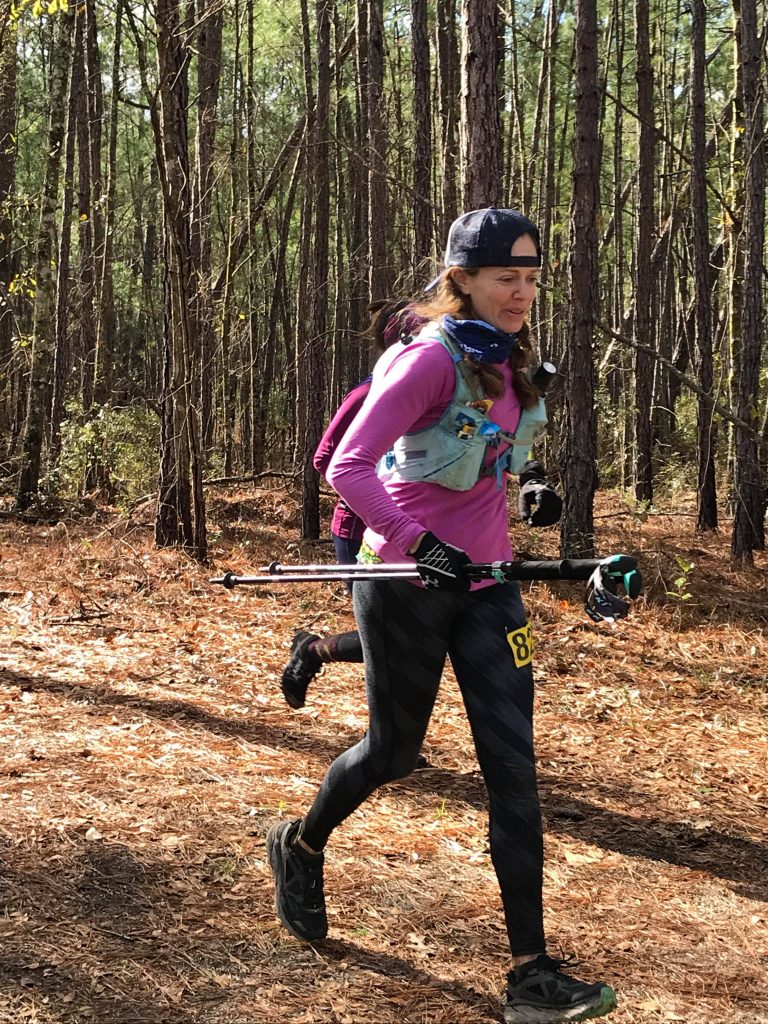
Should You Cutback or Give Up Caffeine Before an Ultramarathon?
For many years, it has been suggested that perhaps giving up or cutting back on caffeine before a race might make the effects of the caffeine more potent…especially in those who already consume large quantities of caffeine.
Therefore, it’s no surprise that ultrarunners frequently ask if they should give up or cutback on caffeine before their race, so that it “works better”.
This might surprise you, but the answer is (usually) NO, you should NOT give up or cutback on caffeine before your race. (I feel all of my fellow caffeine enthusiasts breathing a sigh of relief). Here’s why:
Studies show that even habitual caffeine users (self-described “high tolerance”) experience positive performance and cognitive effects from supplementing caffeine during exercise (8). So yes, caffeine will still work for you during a race, even if you drink a bunch of it during your normal day-to-day life.
But an even more important consideration is that for those who regularly use caffeine in daily life, the negative side effects from cutting back or entirely eliminating consumption may be greater than any potential benefits of cutting back on pre-race caffeine intake the first place.
For example, cutting back on caffeine may affect pre race training, sleep patterns, increase anxiety, or leave runners susceptible to other caffeine withdrawal symptoms that may affect training and/or race day performance. Meaning: the small difference in effectiveness of caffeine consumption during your race from cutting back beforehand, might not outweigh the negative side effects cutting back has on your overall wellbeing, sending you to the start of the race feeling less than stellar.
If you’ve cutback on caffeine before a race in the past and had success, then by all means, stick with that plan. But, if you are hesitant to cutback because it’s such a regular part of your routine, know that it’s not necessarily a “must do” sort of thing for caffeine to be effective during your race.
Best Sources of Caffeine for Ultrarunners:
There is NO shortage of caffeine containing sport specific nutritional items, drinks, gums, or even pills on the market. So does it matter which one you take?
Maybe.
Research DOES show that some forms of caffeine supplementation may be superior to others. However: It’s important to remember that individuality (what you respond best to) accessibility (what you have available to you), and personal preference (what you like)all matter.
For example: studies show that caffeine in chewing gum form may speed the rate of caffeine delivery to the blood via absorption through the extremely vascular buccal cavity (that’s science-y talk for your mouth, or as I prefer to call it in the ultramarathon world, your “grocery hole”)
However, you may HATE chewing gum while running. Or, you may find pure caffeine pills upset your stomach, but gels containing caffeine do not.
Even if a product has been proven to be more effective for most individuals, it means nothing if it elicits negative side effects for YOU personally.
You have to do and use what works best for you as an individual.
Common Caffeine Supplementation Sources:
If you’re not sure of what product works best for you, here is a rundown of commonly seen caffeine supplementation sources.
NOTE: It’s very important to be aware that caffeine labeling requirements are not very strict in the United States. The U.S. Food and Drug Administration (FDA) does not require foods or beverages containing naturally occurring caffeine to list caffeine content on their labels. Conventional foods and beverages containing added caffeine must list caffeine as an ingredient, but do not need to indicate the quantity of caffeine. And, if caffeine is listed on a label as part of a “proprietary blend,” then the amount of the blend must be listed, but not the amount of caffeine in the blend. (4)
Point being? Beware that the amount of caffeine you are ingesting in a given product – especially “energy drink” type products, may be much higher than you expect.
(The following section includes Amazon Associate links. I may earn commission if you choose to make a purchase from these links, at no extra cost to you.)
Caffeinated gels or bars:
Some endurance specific nutrition products, such as this gel from Science In Sport (my current favorite), contain higher doses of caffeine. These options are a quick way to ingest supplemental caffeine while also ingesting calories – something we can never get enough of in ultrarunning!
Caffeinated Drinks:
Drinks containing caffeine can vary greatly, from coffee, to sodas, to endurance specific drinks with added caffeine (such as Tropical Buzz Tailwind), to energy drinks like Red Bull or Monster Energy, etc. Caffeinated drinks may be easier to ingest in the later stages of an ultramarathon, when palate fatigue hits. However, the concentration of caffeine may be spread over a greater volume of fluid, making it more difficult to consume the desired amount of caffeine.
Caffeinated Gum:
Caffeine in an easy to carry, quick to absorb form. There are brands specifically designed for and marketed to athletes (such as Run Gum), and other brands geared towards “focus” or simply staying awake. Personal thoughts and experience: I have a high caffeine tolerance, and these make me a little shaky. Perhaps it’s the quick delivery of the caffeine to my blood stream. The gum loses it’s flavor very quickly, making it not very enjoyable to chew.
Caffeine Shots:
Caffeinated “shots”, like the popular brand “5-Hour Energy” , can give you a hefty dose of caffeine in a small amount of liquid (between 200-242 mg of caffeine per 1.9 oz serving).
As a bonus, these are easy to carry, and usually have a screw top that allows you to consume only some of the shot, saving the rest for later in the race, if you do not want the full serving.
Caffeine Pills:
Caffeinated pills, such as the popular brand “NoDoz” are simply powdered caffeine pressed into pill form. No additives, no sugars, nothing but straight caffeine. These are easy to carry and consume, but may be harder for many athletes to tolerate in pure form.
Practice Makes Perfect:
As with most things in the world of ultramarathon, you’ve got to practice to find the strategy that works best for you. Unfortunately, overnight training isn’t a common practice during ultra training, for a number of reasons. Therefore I recommend the following:
- Know your general caffeine tolerance. If you typically drink a lot of coffee throughout the day, then chances are a 35 mg dose of caffeine in a gel might not have much of an effect on you. However, if you’re super sensitive to caffeine, and rarely consume it, slamming a 200mg energy shot mid ultramarathon may leave you feeling antsy and uncomfortable.
- Implement one or two late night or overnight races into your training. While we can’t “train” our bodies for sleep deprivation, we can occasionally use these simulated conditions to practice our overnight strategies, which includes caffeine supplementation.
- Practice supplementation during daytime training as well, to see what dosing and caffeine sources your body tolerates best.
Final Thoughts:
It’s my observation and experience as a coach that athletes often overthink caffeine supplementation. The bottom line is that while caffeine can absolutely help keep you feeling more alert and awake, there is no one caffeine strategy guaranteed to keep you going through the late night hours.
Focus on your overall training, focus on implementing a nutrition strategy that will help keep you energized, and focus on building your mental strength to keep you moving when times get tough. While caffeine can be helpful, these things are greater contributing factors to helping you get to the finish line and earning that buckle.
Resources:
- Guest, N.S., VanDusseldorp, T.A., Nelson, M.T. et al. International society of sports nutrition position stand: caffeine and exercise performance. J Int Soc Sports Nutr 18, 1 (2021). https://doi.org/10.1186/s12970-020-00383-4
- Hallare J, Gerriets V. Half Life. [Updated 2021 Aug 23]. In: StatPearls [Internet]. Treasure Island (FL): StatPearls Publishing; 2021 Jan-. Available from: https://www.ncbi.nlm.nih.gov/books/NBK554498/
- Institute of Medicine (US) Committee on Military Nutrition Research. Caffeine for the Sustainment of Mental Task Performance: Formulations for Military Operations. Washington (DC): National Academies Press (US); 2001. 2, Pharmacology of Caffeine. Available from: https://www.ncbi.nlm.nih.gov/books/NBK223808/
- Kole, J., & Barnhill, A. (2013). Caffeine Content Labeling: A Missed Opportunity for Promoting Personal and Public Health. Journal of caffeine research, 3(3), 108–113. https://doi.org/10.1089/jcr.2013.0017
- Poole, R., Kennedy, O. J., Roderick, P., Fallowfield, J. A., Hayes, P. C., & Parkes, J. (2017). Coffee consumption and health: umbrella review of meta-analyses of multiple health outcomes. BMJ (Clinical research ed.), 359, j5024. https://doi.org/10.1136/bmj.j5024
- Rivers, W. H., & Webber, H. N. (1907). The action of caffeine on the capacity for muscular work. The Journal of physiology, 36(1), 33–47. https://doi.org/10.1113/jphysiol.1907.sp001215
- Tarnopolsky, M.A.. Effect of caffeine on the neuromuscular system — potential as an ergogenic aid. Applied Physiology, Nutrition, and Metabolism. 33(6): 1284-1289. https://doi.org/10.1139/H08-121
- Tiller, N.B., Roberts, J.D., Beasley, L. et al. International Society of Sports Nutrition Position Stand: nutritional considerations for single-stage ultra-marathon training and racing. J Int Soc Sports Nutr 16, 50 (2019). https://doi.org/10.1186/s12970-019-0312-9
Heather Hart is an ACSM certified Exercise Physiologist, NSCA Certified Strength and Conditioning Specialist (CSCS), UESCA certified Ultrarunning Coach, RRCA certified Running Coach, co-founder of Hart Strength and Endurance Coaching, and creator of this site, Relentless Forward Commotion. She is a mom of two teen boys, and has been running and racing distances of 5K to 100+ miles for over a decade. Heather has been writing and encouraging others to find a love for fitness and movement since 2009.

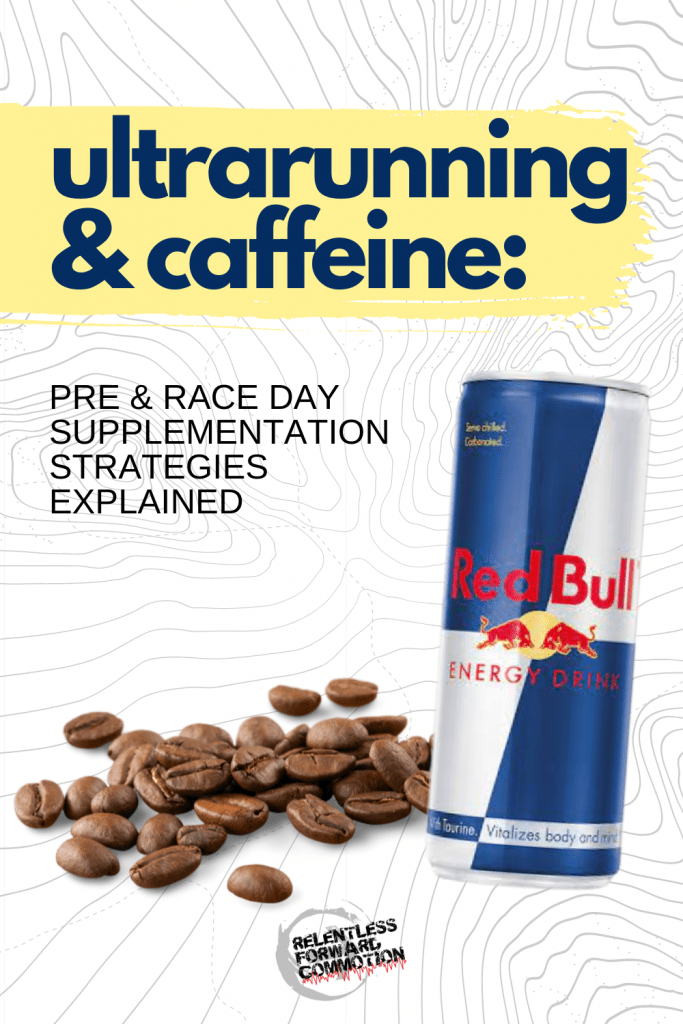
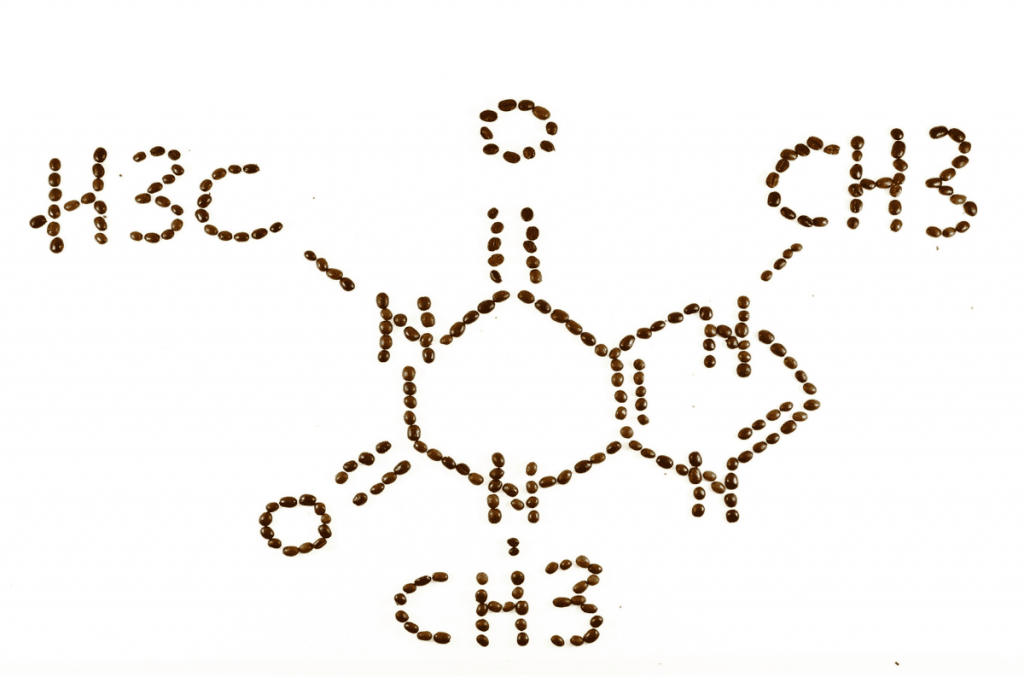

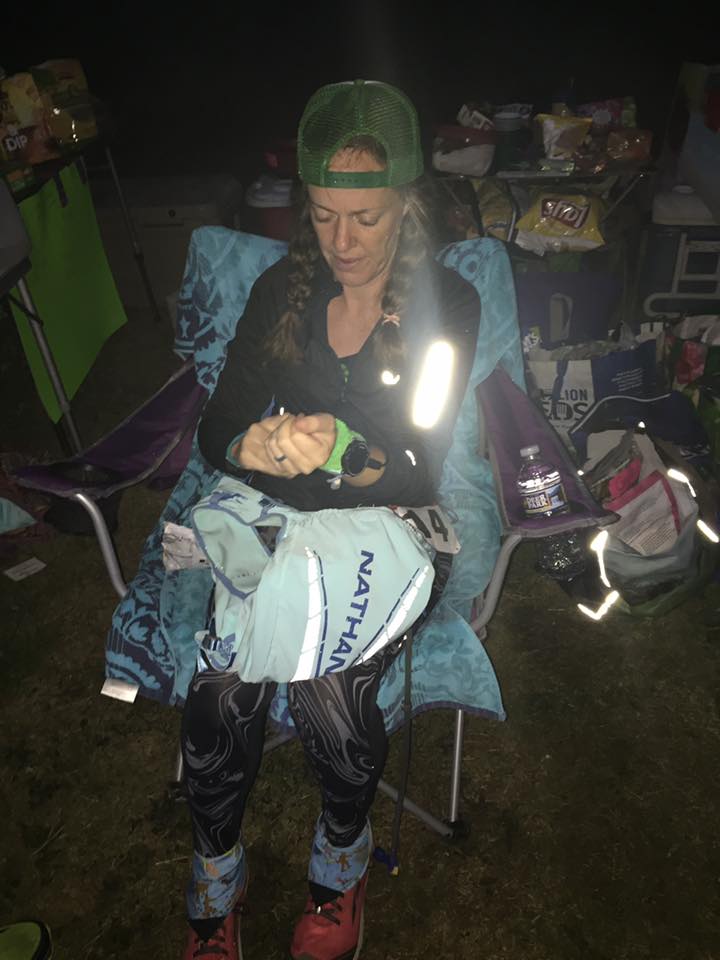
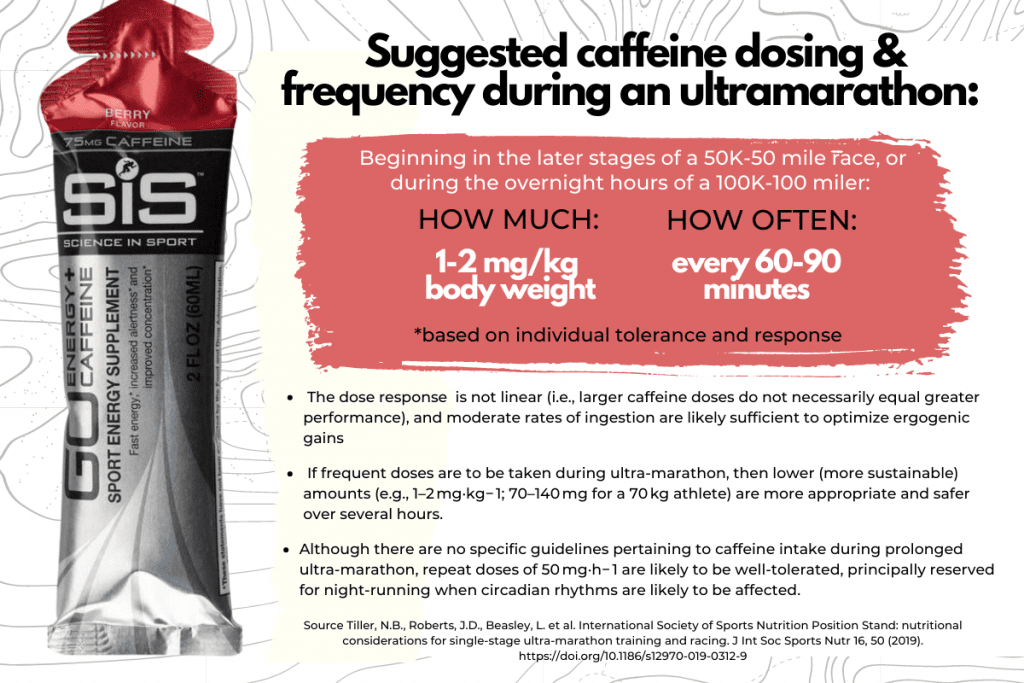
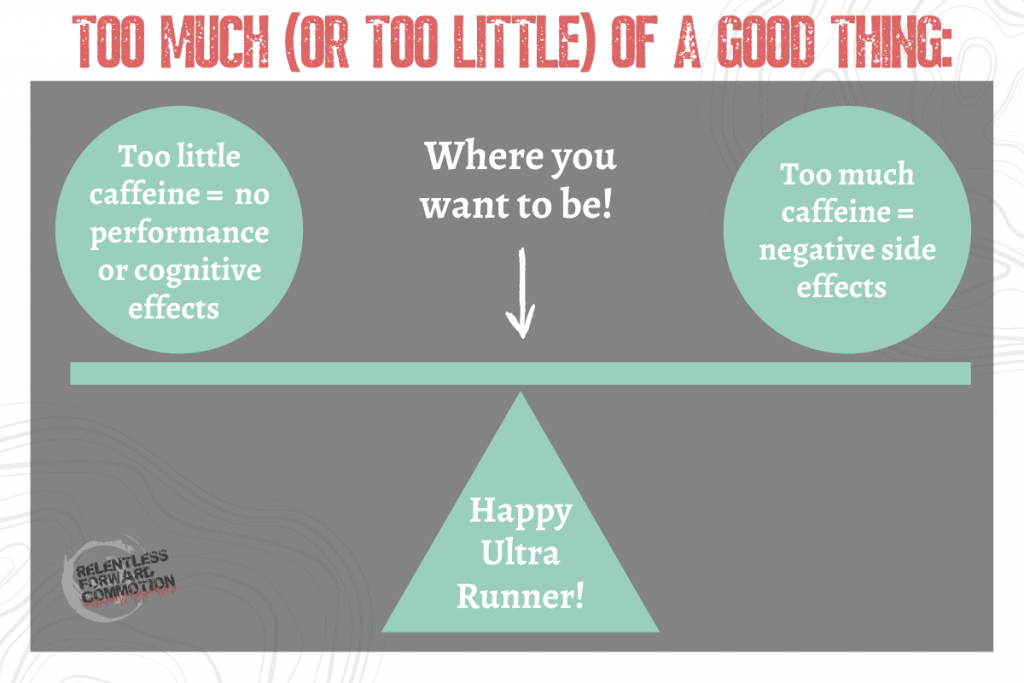
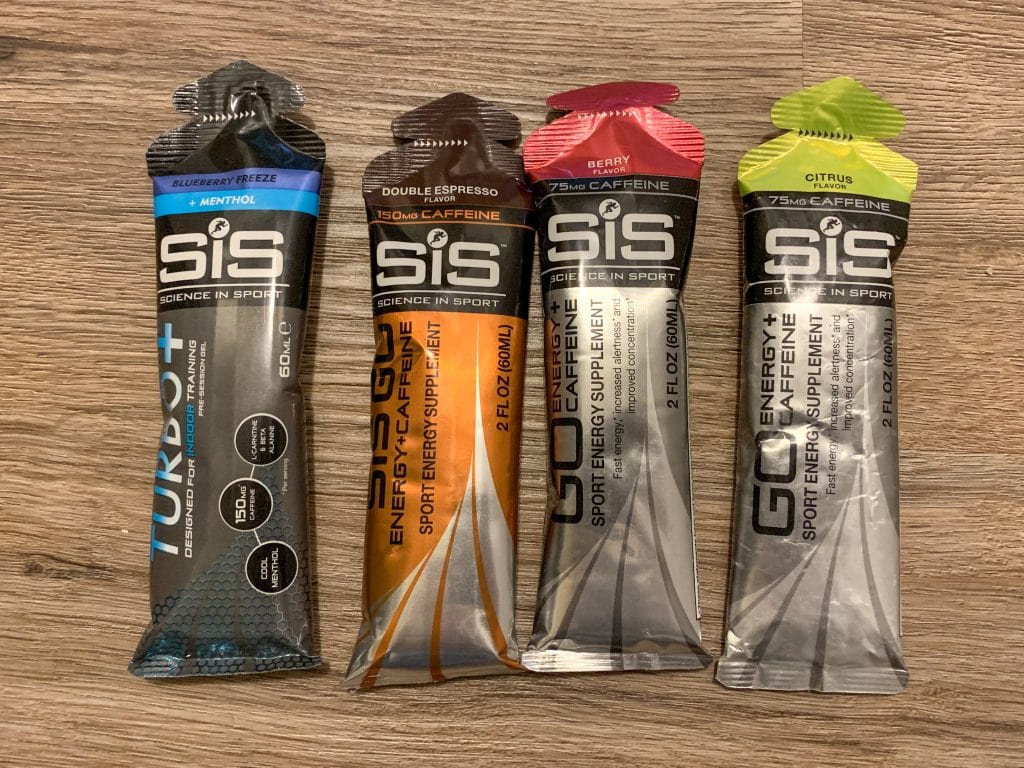
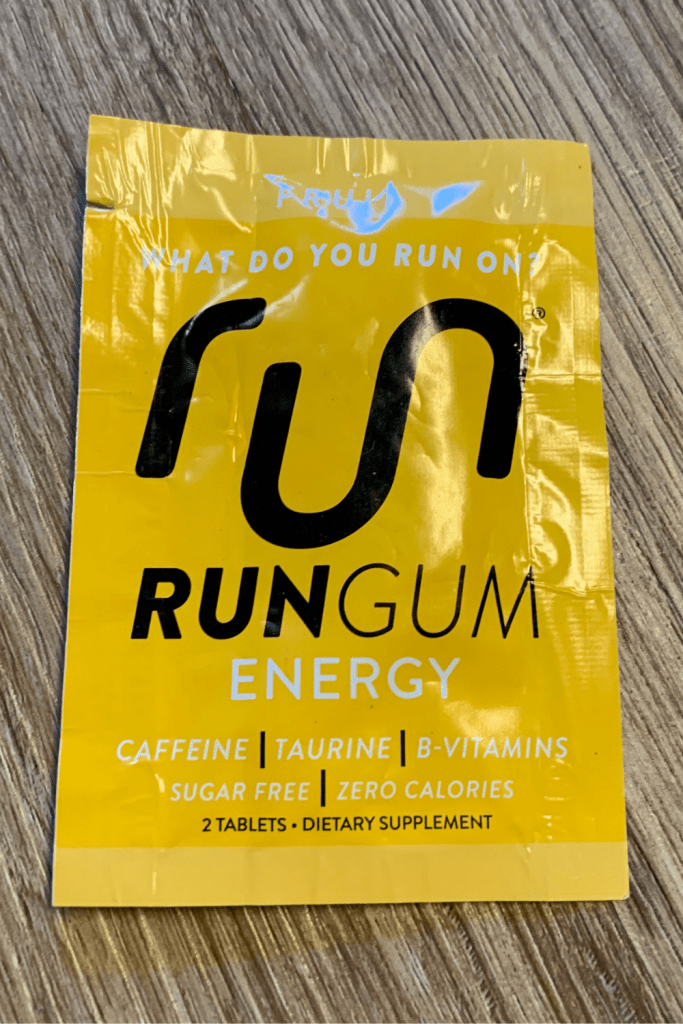
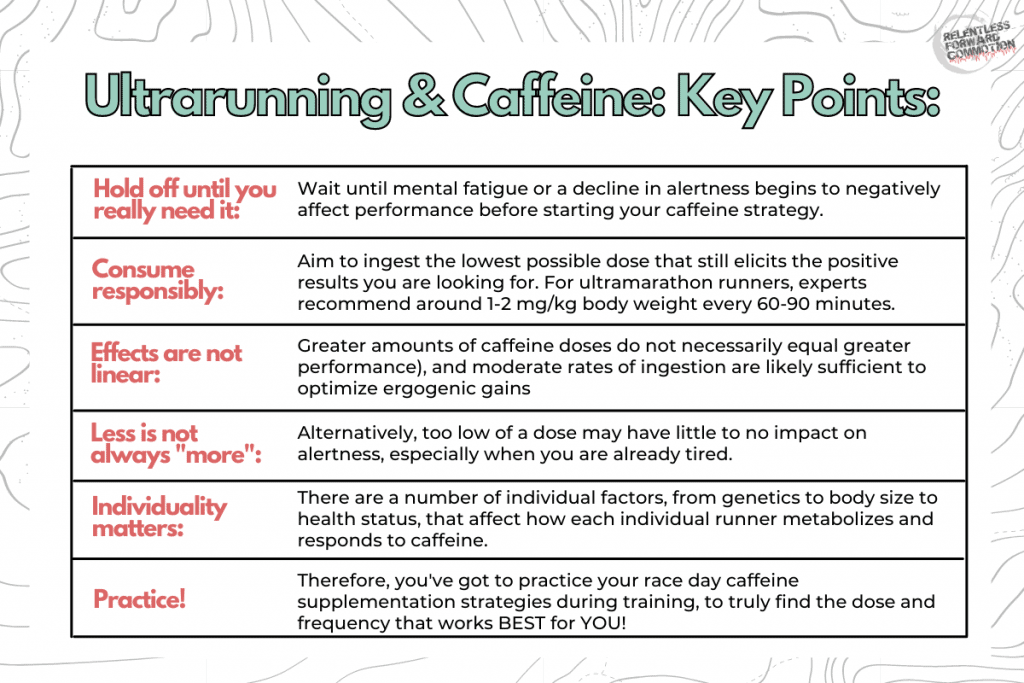

Leave a Reply